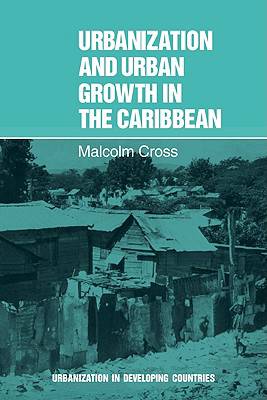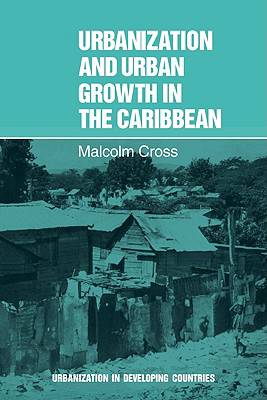
- Afhalen na 1 uur in een winkel met voorraad
- Gratis thuislevering in België vanaf € 30
- Ruim aanbod met 7 miljoen producten
- Afhalen na 1 uur in een winkel met voorraad
- Gratis thuislevering in België vanaf € 30
- Ruim aanbod met 7 miljoen producten
Zoeken
Urbanization and Urban Growth in the Caribbean
An Essay on Social Change in Dependent Societies
Malcolm Cross, Cross
€ 64,95
+ 129 punten
Omschrijving
This book, originally published in 1979, as part of the Urbanization in Developing Countries series, examines the nature and impact of unplanned urban growth in the Caribbean. Unlike other parts of the underdeveloped world, Caribbean societies are unique in having been created by European economic and strategic needs. The original instrument for this domination was the plantation that generated the infamous history of migration from Africa and Asia and which continues to exert an important influence in determining the structure and growth of major urban centres. The book also surveys some distinctive features of Caribbean societies, including family life, religions and social divisions apparently based on race and colour, and concludes by affirming the need to redirect development strategies from Western models towards the creation of a uniquely Caribbean identity based on the redevelopment of land and the revival of agriculture. Examples are drawn from Cuba, Haiti, Puerto Rico and the Commonwealth Caribbean.
Specificaties
Betrokkenen
- Auteur(s):
- Uitgeverij:
Inhoud
- Aantal bladzijden:
- 188
- Taal:
- Engels
- Reeks:
Eigenschappen
- Productcode (EAN):
- 9780521294911
- Verschijningsdatum:
- 14/06/1979
- Uitvoering:
- Paperback
- Formaat:
- Trade paperback (VS)
- Afmetingen:
- 152 mm x 229 mm
- Gewicht:
- 281 g

Alleen bij Standaard Boekhandel
+ 129 punten op je klantenkaart van Standaard Boekhandel
Beoordelingen
We publiceren alleen reviews die voldoen aan de voorwaarden voor reviews. Bekijk onze voorwaarden voor reviews.








